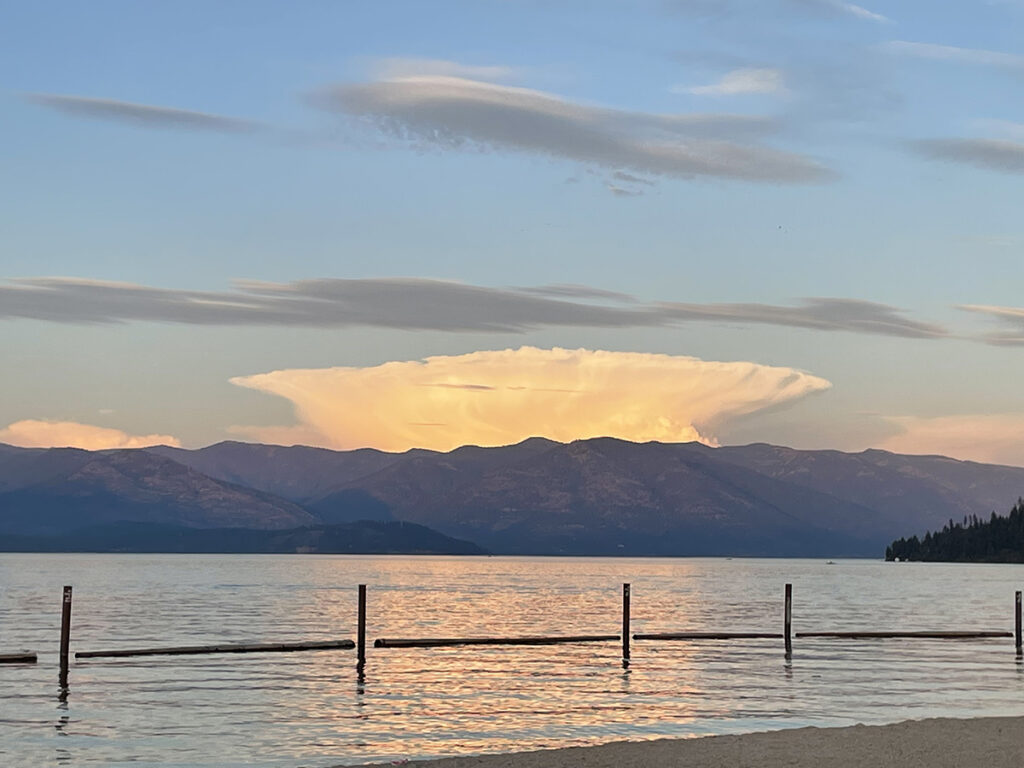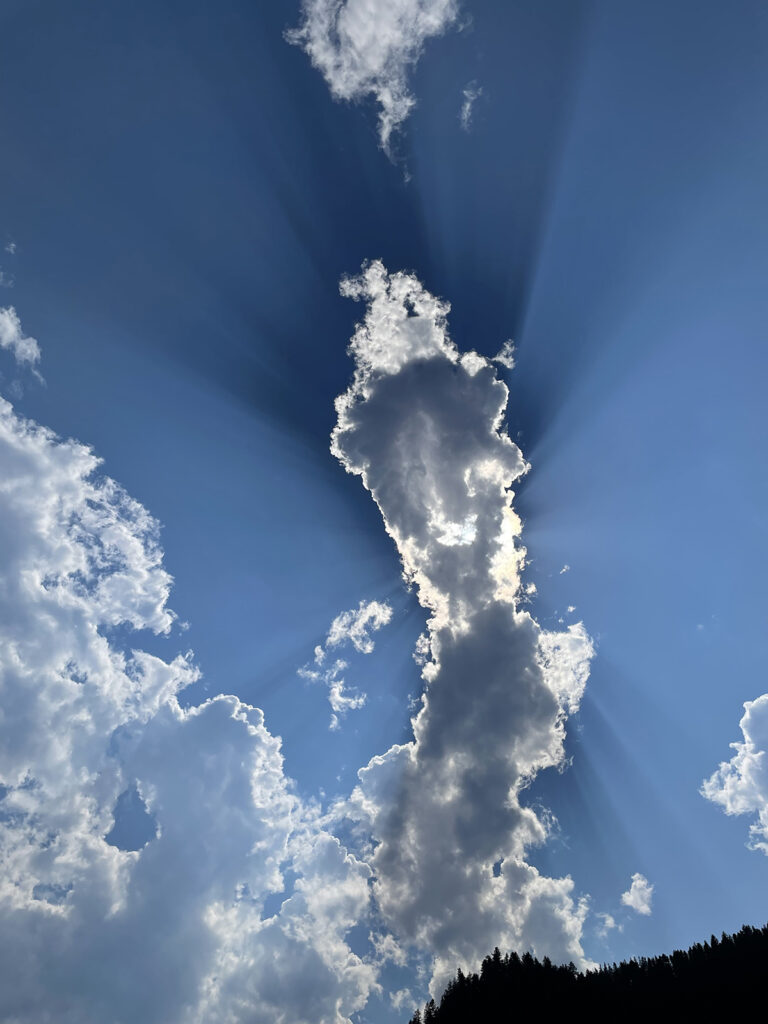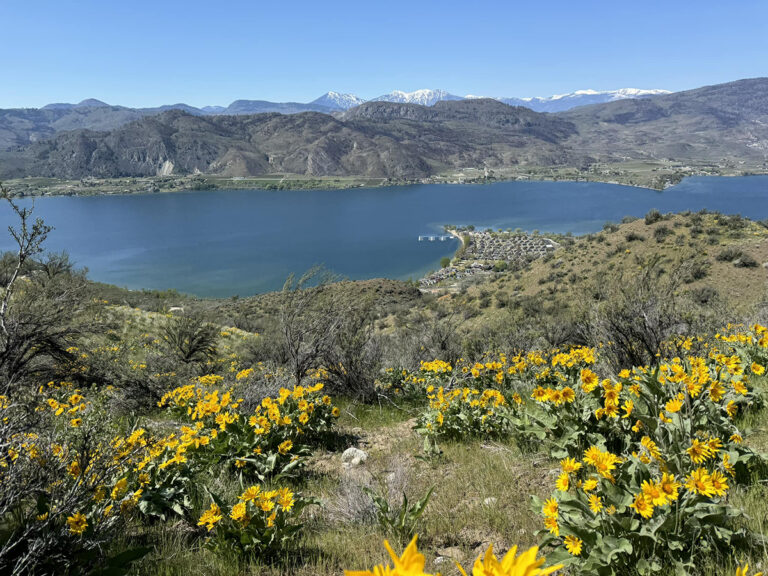Cover photo courtesy of Karie Lee Knoke
Have you ever wondered why we incessantly talk about the weather? Yes, climate change is a topic of heated discussion around the world (no pun intended), but I’m referring to the typical conversation that has been occurring for generations prior to the threats of climate change.
Typically, a conversation will start with “Hi! How are you?” and inevitably someone will start talking about the weather. And then, the contest begins. Who has the best or worst weather, and how amazing or difficult it is for them, as if competing for who wins the Golden Award for the Best Bragging Rights for their Glorified or Miserable situation. We are funny humans in that way.
On the other hand, there are folks who believe that talking about the weather is mundane. It’s a surface level conversation that doesn’t really get into the deeper ways of being or the meaning of life. From that perspective, why would we care about the weather? That may be true, but the reality is, you need to feel safe before you can go spiritual, and having good calm weather will enhance your experience. You wouldn’t be meditating during a hurricane!

In today’s world of climate-controlled environments, our homes, cars, offices, restaurants, stores and even our work-out facilities have enabled us to become isolated from the outdoors. So much that many of us now rely on multiple weather apps on our phones to tell us what the weather is doing on an hourly basis.
The fact is, the weather is an integral part of our survival instincts, carried forward by our ancestors. What they did every day was determined by the weather, not by a time piece. If it was raining, they’d stay indoors. If it was nice out, they’d gather, fish and hunt. Good weather days were to prepare for the upcoming long, snowy winter nights. Everything was indicative of the weather.
Our ancestors relied on all of their senses to predict the weather. Feeling the prevailing winds as it touched the skin of their face. Scanning the horizon for threatening clouds. Smelling the aroma of must of an incoming rainstorm. Feeling the heaviness of the humidity in their bones and watching animal behavior. If the animals were hunkered down, they knew to heed the warning signs and hunker down as well.
During my time on the TV show ALONE in Labrador, Canada, the connection with my landscape was so strong that I could accurately predict the weather, just by using my awareness skills, watching the weather patterns and animal behavior.
The moon cycles are also great tools for predicting weather. The moon controls the ebb flows of the tidal waters, as well as the blood in our body. Full moons bring on more intense weather, while new moons have less gravitational pull and thus bring on weak and variable weather systems.

The production directors of ALONE were puzzled when I clearly stated “You just wait! Three days before the next full moon, there is going to be a big winter storm!” I made this prediction a month ahead of time. On the day before this alleged storm, you see me making my cobb oven and finishing the front wall of my shelter. I worked until 10 o’clock that night even though the weather was still and calm, because I knew from my gut instincts that something was brewing on the horizon. The next three days were spent in my shelter, safely eating my last squirrel, with all my firewood collected, thriving, and enduring the storm. I finally emerged from the safety of my shelter, to find almost two feet of snow.
I had one obnoxious squirrel, incredibly close to my shelter, that constantly chirped. I chose not to hunt him, because he was my alarm system. If he was out running around gathering food, I knew that the other animals would be out, and it was a good time to hunt. On days where he was nowhere to be seen and silent, I knew that I needed to prepare for an incoming storm.
It’s through connection with your landscape, knowing your clouds, tuning into the subtle signs of nature, and trusting your senses and intuition that you can come to understand how our ancestors survived in the wilderness.
So, why do we talk about the weather? It is vital to our survival, and we can’t ignore it. The global weather events of climate change have proven that we are not immune to dramatic weather events, no matter what we do to protect ourselves. We cannot lose these skills of awareness and ignore the weather outside.
Review those school teachings of reading the clouds and you too can learn how to predict the weather by observing your landscape. The next time you’re trying to decide whether to go for a bike ride or go skiing, look up and check out your environment before looking at your phone. Challenge yourself! See how accurate you can be in predicting your weather. //












